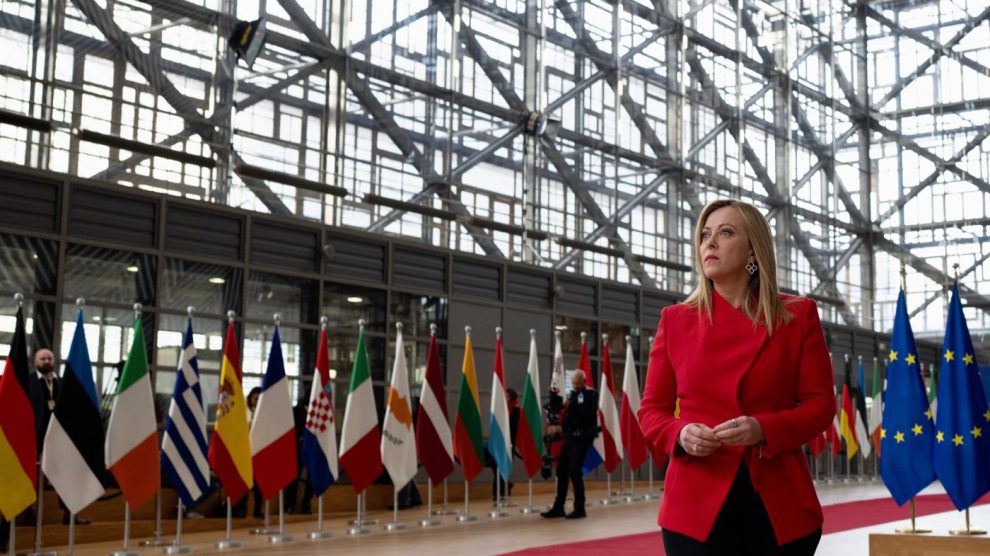Zelensky in the heart of Europe. On Tuesday, the Ukrainian President took part in the European Council in Brussels, coming face-to-face with most EU State leaders on the sidelines. Among them was Italian PM Giorgia Meloni, who met with him alongside Spanish PM Pedro Sanchez, Poland’s Mateusz Morawiecki, the Netherlands’ Mark Rutte, Sweden’s Ulf Kristersson and Romanian President Klaus Johannis.
- AdnKronos reported that the Council planned the group meeting due to time constraints and delays. Excluding France’s Emmanuel Macron and Germany’s Olaf Scholz, who already spoke directly with President Zelensky on Wednesday night at the Elysée Palace, 25 other leaders remained. “Had they all spoken to Zelensky, it would have taken hours, which the Ukrainian president does not have.”
- Nevertheless, Mr Zelensky asked PM Meloni to remain after the group meeting for a two-way, long conversation, where the latter confirmed Italy’s support for Ukraine against the Russian aggression and the former expressed strong gratitude for Rome’s commitment.
Going at it in two. Earlier, PM Meloni had reprimanded the French President, noting it was “inappropriate” to invite Zelensky at dinner without including the rest of the EU aside from the German Chancellor. “Our strength must be unity,” she remarked, stressing that the Old Continent must act – and present itself – as a united bloc.
- “I have no comment to make,” replied Mr Macron defensively. “I wanted to receive President Zelensky with Chancellor Scholz; I think we were in our role. Germany and France, as you know, have had a special role for eight years on this issue.”
- Messrs Macron and Scholz seemed to replicate the Inflation Reduction Act playbook: their economy ministers recently travelled to Washington to discuss industrial subsidies, an EU-wide matter, consolidating suspicions from the other 25 States that Paris and Berlin were posturing for their own benefit and not the entire bloc’s.
Codeword: EUnity. PM Meloni ended up taking on the mantle of European coordination in the face of the Franco-German solitary approach – burnishing her new Europeanist persona in contrast with Mr Macron’s and Mr Scholz’s brand of foreign policy approach.
- That seemed to have paid off. During the day, the Minister for Enterprise and Made in Italy, Adolfo Urso, spoke with the French Minister for the Economy, Bruno Le Maire, who reportedly had requested the contact to explain the results of his Washington mission.
- The former replied that Europe’s response to the American IRA could only be “shared” according to the principles of cohesion and solidarity. “Sending different signals risks raising false expectations overseas,” he added, “and splitting the internal EU front by delaying the decision-making process.”
Time to talk. Both agreed on the need to provide adequate responses to support the European industrial fabric, which otherwise risks being heavily penalised by the US’ reshoring push, and on meeting in Rome “shortly” to discuss their respective positions – also in light of the outcome of the EU Council currently taking place in Brussels.
- Minister Urso reiterated the need to restore a unified European vision, which would allow reforming State aid rules fairly and consistently with the constraints of the single market while also providing for the flexible re-use of available funds – as he and European Minister Raffaele Fitto recently called for.
- Lastly, the two ministers agreed that new common resources must be guaranteed through a Sovereign Fund to finance strategic and innovative sectors, such as the cleantech industries endangered by foreign subsidies.




